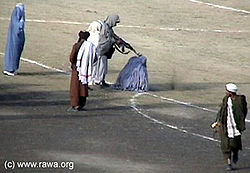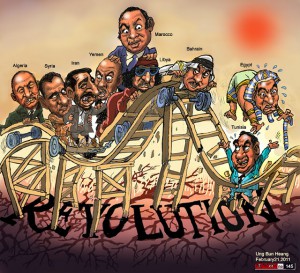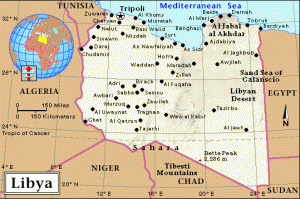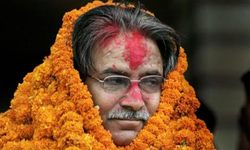http://bit.ly/17WKj1v
By Mark Ames
On November 27, 2013
Who “owns” the NSA secrets leaked by Edward Snowden to reporters Glenn Greenwald and Laura Poitras?
Given that eBay founder Pierre Omidyar just invested a quarter of a billion dollars to
personally hire Greenwald and Poitras for his new for-profit media venture, it’s a question worth asking.
It’s especially worth asking since it became clear that Greenwald and Poitras are now the only two people with full access to the complete cache of NSA files, which are said to number anywhere from 50,000 to as many as 200,000 files. That’s right: Snowden doesn’t have the files any more, the Guardian doesn’t have them, the Washington Post doesn’t have them… just Glenn and Laura at the for-profit journalism company created by the founder of eBay.
Edward Snowden has popularly been compared to major whistleblowers such as Daniel Ellsberg, Chelsea Manning and Jeffrey Wigand. However, there is an important difference in the Snowden files that has so far gone largely unnoticed. Whistleblowing has traditionally served the public interest. In this case, it is about to serve the interests of a billionaire starting a for-profit media business venture. This is truly unprecedented. Never before has such a vast trove of public secrets been sold wholesale to a single billionaire as the foundation of a for-profit company.
Think about other famous leakers: Daniel Ellsberg neither monetized nor monopolized the Pentagon Papers. Instead, he leaked them to well over a dozen different newspapers and media outlets such as the New York Times and Washington Post, and to a handful of sitting senators — one of whom, Mike Gravel, read over 4,000 of the 7,000 pages into the Congressional record before collapsing from exhaustion. The Papers were published in book form by a small nonprofit run by the Unitarian Church, Beacon House Press.
Chelsea Manning, responsible for the largest mass leaks of government secrets ever, leaked everything to WikiLeaks, a nonprofit venture that has largely struggled to make ends meet in its seven years of existence. Julian Assange, for all of his flaws, cannot be accused of crudely enriching himself from his privileged access to Manning’s leaks; instead, he shared his entire trove with a number of established media outlets including the Guardian, New York Times, Le Monde and El Pais. Today, Chelsea Manning is serving a 35-year sentence in a military prison, while the Private Manning Support Network constantly struggles to raise funds from donations; Assange has spent the last year and a half inside Ecuador’s embassy in London, also struggling to raise funds to run the WikiLeaks operation.
A similar story emerges in the biggest private sector analogy — the tobacco industry leaks by whistleblowers Merrell Williams and Jeffrey Wigand. After suffering lawsuits, harassment and attempts to destroy their livelihoods, both eventually won awards as part of the massive multibillion dollar settlements — but the millions of confidential tobacco documents now belong to the public, maintained by a nonprofit, the American Legacy Project, whose purpose is to help scholars and reporters and scientists fight tobacco propaganda and power. Every year, over 400,000 Americans die from tobacco-related illnesses.
The point is this: In the most successful whistleblower cases, the public has sided with the selfless whistleblower against the power- or profit-driven entity whose secrets were leaked. The Snowden case represents a new twist to the heroic whistleblower story arc: After successfully convincing a large part of the public and the American Establishment that Snowden’s leaks serve a higher public interest, Greenwald promptly sold those secrets to a billionaire.
He justified this purely on grounds of self-interest, calling Omidyar’s offer “a once-in-a-career dream journalistic opportunity.” Speaking to the Washington Post, Greenwald used crude careerist terminology to justify his decision to privatize the Snowden secrets:
“It would be impossible for any journalist, let alone me, to decline this opportunity.”
News about Greenwald-Poitras’ decision to privatize the NSA cache came just days after the New York Times reported on Greenwald’s negotiations with major movie studios to sell a Snowden film. This past summer, Greenwald sold a book to Metropolitan Books for a reportedly hefty sum, promising that some of the most sensational revelations from Snowden’s leaks would be saved for the book.
Indeed what makes the NSA secrets so valuable to Greenwald and Poitras is that the two of them have exclusive access to the entire cache. Essentially they have a monopoly over secrets that belong to the public. For a time, it was assumed that Snowden had kept copies of the leaked documents, possibly on a number of laptops he was carting around the world. Greenwald and Poitras were simply conduits between Snowden’s cache and the public. In late August, Greenwald disclosed for the first time in a statement to BuzzFeed:
“Only Laura and I have access to the full set of documents which Snowden provided to journalists.”
Later, from his hideout in Russia, Snowden released a statement claiming he had left all the NSA files behind in Hong Kong for Greenwald and Poitras to take. A third Guardian journalist in Hong Kong at the time, Ewen MacAskill, confirmed to me on Twitter that only Greenwald and Poitras took with them the full cache. Even the Guardian was not allowed access to the motherlode.
Clearly, in a story as sensational and global and alluring as Snowden’s Secrets™, exclusive access equals value. And for the first time in whistleblower history, that value has been extracted in full through privatization.
It is one thing for Greenwald to maintain that exclusivity — or monopoly — while working with the Guardian, a nonprofit with institutional experience in investigative journalism. It is quite another for him to sell them to a guy with a history of putting profits before public interest. As Yasha Levine and I wrote at NSFWCORP, Omidyar invested in a third-world micro-loans company whose savage bullying of debtors resulted in mass suicides. Rather than acknowledge this tragedy, Omidyar Network simply deleted reference to the company from his website when the shit hit the fan.
This — this? — is the guy we’re supposed to trust with the as-yet unpublished NSA files? He’s the one we’re relying on to reveal any dark secrets about the tech industry’s collusion with the NSA? Let’s hope there’s nothing in there about eBay. Whoops! Deleted!
Since we first raised our concerns, Yasha and I have been swamped with responses from Greenwald’s followers. The weird thing is, not all of those responses have been negative: even Wikileaks — Wikileaks! — responded that, “We have not [fallen out with Greenwald] but @Pierre is seriously compromised by Paypal’s attacks on our organisation and supporters.”
Greenwald’s leftist and anarchist fans have always had an almost cult-like faith in his judgment, seeing him as little less than a digital-age Noam Chomsky. But now they’re reeling from cognitive dissonance, trying to understand why their hero would privatize the most important secrets of our generation to a billionaire free-marketeer like Omidyar, whose millions have, in some cases, brought market-based misery into some of the poorest and most desperate corners of the planet.
A Greenwald-Omidyar partnership is as hard to swallow as if Chomsky proudly announced a new major venture with Sheldon Adelson, on grounds that it’s a “once-in-a-career dream academic opportunity.”
WikiLeaks’ concern about Omidyar can be traced back to PayPal’s decision in December 2010 to blockade users from sending money to WikiLeaks. PayPal (founded by Pando investor, Peter Thiel — more on that below) is owned by eBay, where Omidyar has served as the chairman of the board since 2002. Before the blockade, PayPal was the principal medium for WikiLeaks donations, according to the Washington Post.
As the single investor, founder and CEO of “NewCo”, Omidyar’s self-professed helplessness at eBay doesn’t extend to his new journalistic venture.
More troubling for fans is that Greenwald has repeatedly provided cover for Omidyar, claiming that he “had nothing to do with [the blockade]” despite his board status. Whether or not eBay’s chairman really was ignorant of his company’s most controversial decision in years, there’s no denying that Omidyar is also eBay’s largest shareholder. At nearly 10%, his stake is worth billions and is more than twice as large as that of the next largest shareholder.
By Greenwald’s reasoning, even though Omidyar is the founder, largest shareholder, and chairman of the body responsible for eBay/PayPal management oversight, he had “nothing to do with” its policy towards Wikileaks. Zero. None. He was as helpless as you, me, Batkid, or Grumpy Cat.
Fortunately, as the single investor, founder and CEO of “NewCo”, Omidyar’s self-professed helplessness at eBay doesn’t extend to his new journalistic venture. With that level of autonomy, no one — not even Glenn Greenwald, who has admitted that Omidyar’s money is irresistibly persuasive — can tell him which secrets to publish on his new site, and which should remain hidden forever.
We can all rest easy in our beds, then, knowing that Omidyar is in charge of our secrets. Information of national importance, such as which major tech companies colluded with the US government to spy on private citizens, will be published at the discretion of the founder and largest shareholder of one of those companies.
Robbing Peter to Pay Paul (and Mark). An important footnote about Peter Thiel and Pando, by Paul Carr
When NSFWCORP’s acquisition by Pando was announced, Greenwald raced to Twitter to accuse us of hypocrisy because Peter Thiel (another billionaire whose previous business dealings could fill a book, and who sold PayPal to eBay in the first place) once invested $200,000 in PandoDaily, through his Founders Fund.
That’s absolutely true. Founders Fund’s investment is disclosed here on Pando’s main about page, along with the names of the other investors who collectively invested the remaining $2.8m raised by Pando.
The difference between us selling our company to a media outlet that once received a minority investment from Founders Fund and Greenwald being personally hired by Omidyar should be obvious to anyone with a brain. But at the risk that category excludes Glenn’s most ardent supporters, we’re happy to spell out the difference (apart from the monetary difference of $249,800,000 between Thiel’s $200k and Omidyar’s $250 million, of course):
Peter Thiel has no involvement with the running of Pando. Zero. He doesn’t make hiring or firing or any other kind of decisions (nor do any other investors), Founders Fund isn’t Pando’s only (or even closest largest) investor and no one from Founders Fund has a board seat, voting rights or any other input in business or editorial policy. In other words, Thiel has less ability to dictate editorial policy here, in fact, than the guy who cleans the coffee cups (at least that guy has a key to the office).
Pierre Omidyar is personally hiring the journalists for his new project, starting with Greenwald himself. He is the venture’s sole backer. But, you know what? All of that would still be OK if Greenwald would make a simple, unequivocal, public pledge: to cover any bad behavior by Pierre Omidyar in the same way that he would cover someone who wasn’t backing him with millions of dollars.
Should be a simple thing to promise, right?
Here’s our absolute, unequivocal pledge: we will cover Peter Thiel and Pando’s other investors just as fiercely as we cover Pierre Omidyar or anyone else. In fact, it’s likely due to proximity that we will cover Pando’s investors even more fiercely. That’s how we always worked at NSFWCORP — and it’s how we’ll work here. Our past coverage of Thiel can be found all over the web, including here, here and even right here on Pando. Or see how we’ve covered NSFWCORP/Pando investors CrunchFund and Vegas Tech Fund.
When we asked Glenn to make that same pledge about his single investor, in light of our coverage of Omidyar, he responded simply: “I can’t speak for Omidyar Network,” adding he had “no idea” about Omidyar’s involvement in micro loans.
We contacted Omidyar Network for comment on this story but neither had responded at press time. We’ll update here if they do.
Illustration by Brad Jonas.







Recent Comments